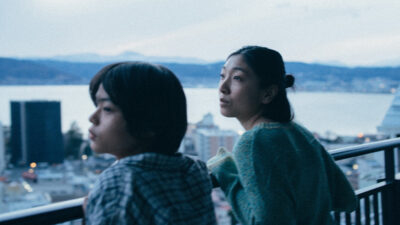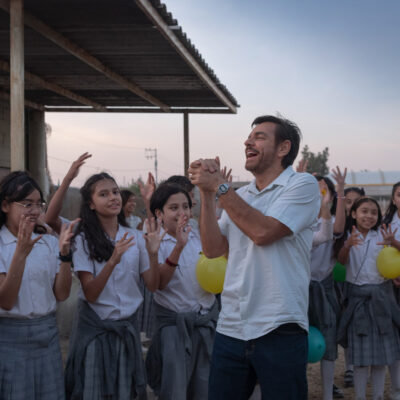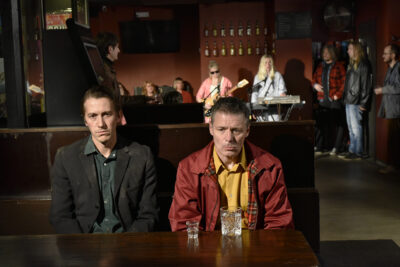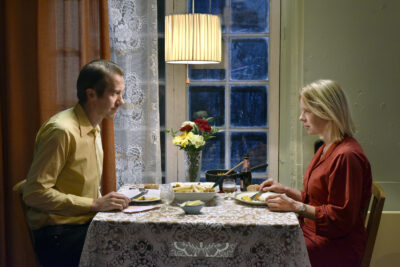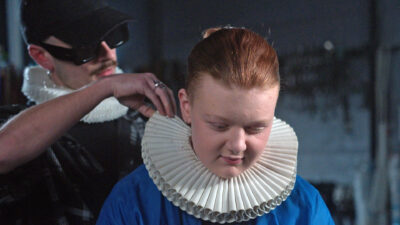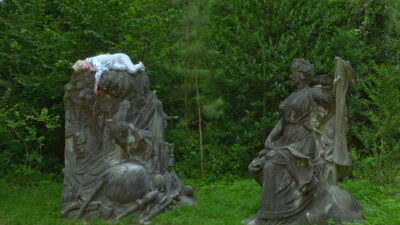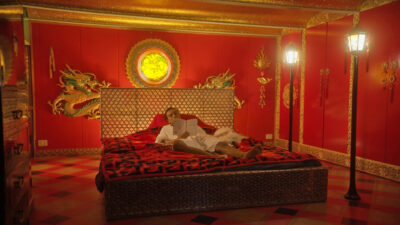From Greg Laemmle: “I started this as a Christmas Eve event (tradition!) specifically because I wanted to celebrate that as Jews in America, we did not need to hide in our homes. My grandmother hated this time of year because she had memories of her childhood in Tsarist Russia and the frequent episodes of violence (pogroms) against the Jewish communities there around the holiday. The America that I grew up in was open enough that it could accept the diversity of our society, recognizing that Americans of all religious (or non-religious) backgrounds were free to celebrate the end of year period in their own fashion. I’m not sure America is as accepting right now, but I’m not prepared to cede this ground to those pushing for a more restrictive vision of what America is. Now, more than ever, it is important that we not hide. And now, as much as ever, we need to feel the joy of the free association that is a Constitutional right of living in America. Fiddler on the Roof tells a complicated tale about the fragility of living as a minority in an oppressive state. But it also shows the joy and beauty of life, and hints at the potential of modernity to provide a freer world that does not discriminate based on race, religion or gender. LOVE is the force that truly shakes the foundations of Tevye’s world. And LOVE, not HATE, will save us from our current predicaments.”
JOIN US on DEC. 24th for our umpteenth annual alternative Christmas Eve, the Fiddler on the Roof Sing-a-Long! Screening at 7 o’clock at our Claremont, Glendale, Newhall, NoHo, West L.A. and Encino theaters.
Belt out your holiday spirit … or your holiday frustrations. Either way, you’ll feel better as you croon along to all-time favorites like “TRADITION,” “IF I WERE A RICH MAN,” “TO LIFE,” “SUNRISE SUNSET,” “DO YOU LOVE ME?” and “ANATEVKA,” among many others.
We encourage you to come in costume! Guaranteed fun for all. Children are welcome (Fiddler is rated “G”) though some themes may be challenging for young children.
Prices this year start at $16 for General Admission and $13 for Premiere Card holders. Typically, Fiddler sells out … so don’t miss the buggy!
Originally based on Sholem Aleichem’s short story “Tevye and His Daughters,” Norman Jewison’s adaptation of the long-running Broadway musical is set in a Russian village at the beginning of the twentieth century. Israeli actor Topol repeats his legendary London stage performance as Tevye the milkman, whose equilibrium is constantly being challenged by his poverty, the prejudice of non-Jews, and the romantic entanglements of his five daughters. Fiddler was nominated for eight Oscars, including Best Picture, Director and Actor, and won three, for Cinematography, Sound and Score (John Williams).

